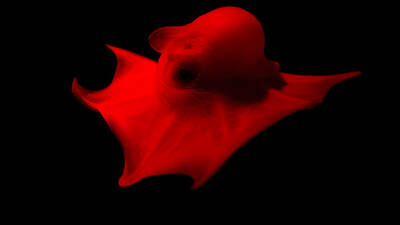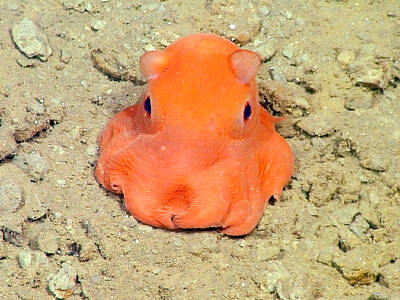Japan has restarted the first nuclear reactor since the meltdown at the Fukushima power plant last year.
Hundreds gathered near the plant in the town of Ohi to protest against the move.
Last month, the prime minister urged support, saying a return to nuclear power was essential for the economy. All 50 of Japan’s nuclear plants were shut after the meltdown at Fukushima, which was triggered by a tsunami and earthquake. The crisis was regarded as the worst nuclear disaster since Chernobyl in 1986.

Photo: Reuters
照片:路透
About 100 of the 650 protesters at the nuclear plant blocked a nearby road overnight, but a Kepco spokesman said the reactivation was not affected.
On June 29, tens of thousands took part in anti-nuclear rallies in Tokyo outside Prime Minister Yoshihiko Noda’s official residence, chanting “Saikado hantai,” or “No to nuclear restarts,” in what correspondents say was a rare show of dissent in Japan. The BBC’s Mariko Oi says it was one of the largest demonstrations seen since the reactors at Fukushima were damaged in March 2011.
Tokyo-based protester Nobuhiko Shudo told the BBC the problem of disposing of radioactive waste was key. “The most important thing for us is sustainability of the Earth for the next generation, so if we have some problems to keep the planet clean and beautiful, then we have to change the industrial structure” to foster alternative energy sources, he said.
(Liberty Times)
去年福島核電廠熔毀後日本首度重啟核子反應爐。數百人聚集在大飯核電廠附近,抗議重啟反應爐。
上月首相呼籲各界支持,表示重新使用核電對經濟很重要。福島核電廠因海嘯與地震熔毀後,全日本五十座核電廠停止運轉。福島危機被認為是一九八六年車諾比事件之後最嚴重的核災。
六百五十名抗議民眾中,約百人漏夜封鎖核電廠附近的一條道路,但關西電力發言人表示,重啟工作未受影響。
成千上萬的人六月二十九日在首相野田佳彥的官邸外抗議,高喊「反對重啟核能」的口號,在多名特派員看來,這是日本人罕見地展現異議。英國廣播公司(BBC)記者大井真理子表示,這是二○一一年三月福島核電廠毀損後最大規模的示威行動。
來自東京的抗議民眾首藤信彥(譯音)向BBC表示,核廢料處理的問題是關鍵。「對我們而言,最重要的是為了下一代保持地球的永續性。所以如果無法讓地球保持乾淨與美麗,我們就要改變產業結構」,來促進替代能源發展。
(自由時報/翻譯:陳維真)

The deep waters off the coast of California are home to a bizarre creature: the flapjack octopus. This creature, known for its pancake-like appearance, spreads itself thin on the seabed as a clever survival strategy, making it difficult for predators to spot and capture it. With its unique, umbrella-shaped body formed by webbed arms, the flapjack octopus moves through the water in a graceful manner. It propels itself forward by rhythmically moving its body and contracting its webbed arms. Its pair of ear-like fins, which move independently yet with remarkable coordination, also help it explore the deep-sea environment. These

Bilingual Story is a fictionalized account. 雙語故事部分內容純屬虛構。 I stand by the Miluo River as dusk falls. The court betrayal is too much. I served Chu with loyalty. I forged alliances and fought corruption. But the whispers of jealous courtiers, the murmurs of treason, spoke louder. The king cast me out. The water looks calm. It promises peace. I step in. The river is cold against my legs. I hear shouts behind me — fishermen calling my name. I keep walking. The calls grow louder, but I do not turn around. The water rises to my chest. It pulls at me. I

In Taiwan, people can use a platform to rent a power washer for a weekend or share unused garage space for someone’s storage needs. These are examples of the sharing economy, a consumption model that has gained widespread adoption worldwide. This approach allows people to rent or share assets like cars, homes or even services, typically through online platforms. This innovative model poses a simple yet powerful question: why purchase infrequently used items when sharing is more practical? By making useful but idle resources accessible, the sharing economy turns them into sustainable opportunities. Internationally, platforms like Airbnb and Uber have popularized

Continued from yesterday(延續自昨日) https://www.taipeitimes.com/News/lang Many people may be familiar with flapjack octopuses thanks to Pearl, a charming character from the Pixar film Finding Nemo. However, her portrayal presents several scientific inaccuracies. In reality, flapjack octopuses are deep-sea creatures, which are unsuitable for the brightly lit shallow reef environment depicted in the film. Their primary defense mechanism relies on their reddish coloration, which would be ineffective in the well-lit shallows. Pearl’s famous line, “You guys made me ink,” is another fictional detail that is not consistent with the observed actions of real flapjack octopuses. As common as it is in many other octopus